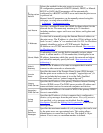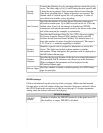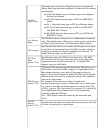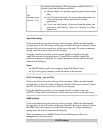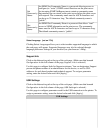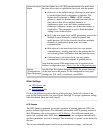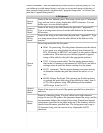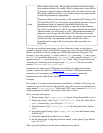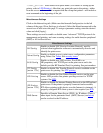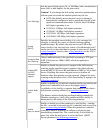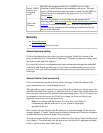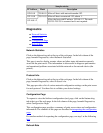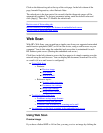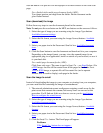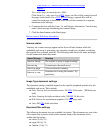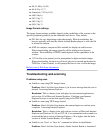
“clear_printer” when asked for a queue name. (For details of setting up the
printer, refer to LPD Printing.) After that, any print jobs sent to the printer—either
from the server or from a client computer that has set up that printer—will include a
reset command at the beginning of the job.
Miscellaneous Settings
Click on the Networking tab. (Make sure that beneath Configuration in the left
column of the page,
Other Settings is selected.) Select the Miscellaneous tab in the
second row of tabs across the page. To assign a parameter setting, enter the desired
value and click
[Apply].
These settings are used to enable or disable some “advanced” TCP/IP protocols for
management and printing, and some scanning settings for multi-function peripheral
(MFP) or All-in-One devices.
Miscellaneous Settings
SLP Config
Enable or disable SLP (Service Location Protocol), used by
selected client application software to automatically discover and
identify the print server.
Telnet Config
Enable or disable access to print server configuration parameters
using Telnet. See Telnet. See security issues.
9100 Config
Enable or disable port 9100 services. Port 9100 is an
HP-proprietary raw TCP/IP port on the print server and is the
default port (the HP Standard Port) for printing. See port numbers.
FTP Config
[not on 175x]
Enable or disable File Transfer Protocol services available on the
print server for printing. See FTP printing
LPD Printing
Enable or disable the Line Printer Daemon services on the print
server. LPD provides line printer spooling services for TCP/IP
systems. See LPD.
IPP Printing
[not on 175x]
Enable or disable the Internet Printing Protocol on the HP Jetdirect
print server. If the printer is properly connected and accessible,
IPP allows printing to this device over the Internet (or intranet). A
properly configured IPP client system is also required (see IPP).
DNS Server
Specifies a Domain Name Server (DNS) , by IP address. Then, a
name input for the parameter Email (SMTP) Server (see below)
can be resolved to the IP address.



